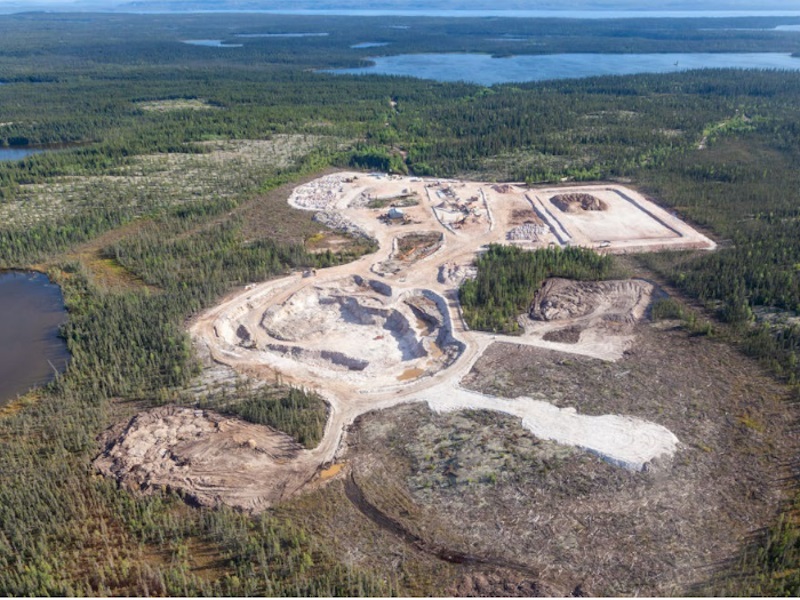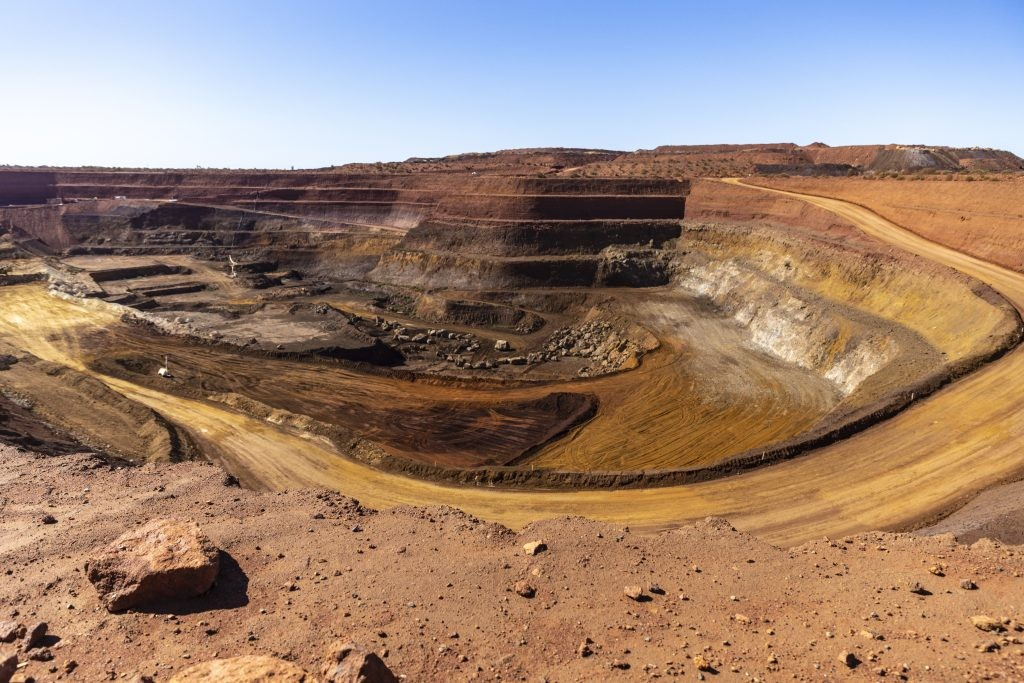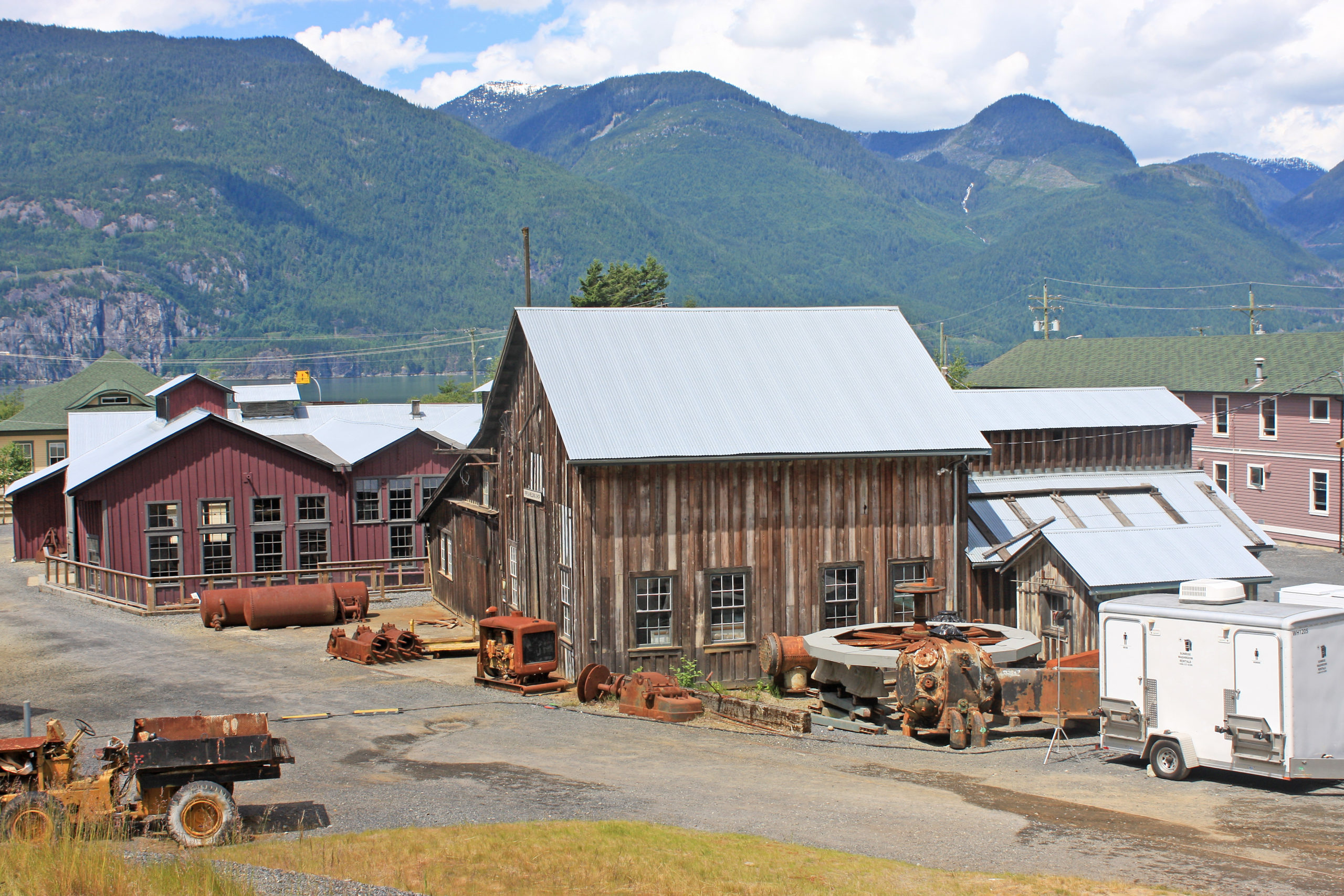In the first of two parts covering the inaugural event, we’ll focus on what Beaty, one of Canada’s most successful mining entrepreneurs and current chairman of Equinox Gold (TSX: EQX; NYSE-AM: EQX), had to say. What follows are excerpts from the sold-out event, which attracted 100 delegates.
Tickets to the next Speaker Series event in Toronto on June 8 with mining legend Pierre Lassonde and Orix Geoscience president, CEO and cofounder Ashley Kirwan are now available.
Do what you love
Ross Beaty has enjoyed remarkable success as a mine and company builder over his career spanning more than 40 years. In addition to joining the Canadian Mining Hall of Fame in 2018, Beaty is a recipient of the Canadian Institute of Mining past president Memorial Medal and was appointed to the Order of Canada in 2017.
A mine and company builder who is also committed to sustainable development, Beaty has been a leader not only for the mining and metals industry, but also the renewable energy industry.
Several themes came through in Beaty’s remarks, with his career success stemming from a unique combination of traits: passion and perseverance, tolerance for risk, and an independent streak that made him able to successfully invest counter-cyclically.
Anthony Vaccaro, President of the Northern Miner Group, began the conversation by asking Beaty to consider this thought experiment: “You’re at the pearly gates. The higher powers have decided on that. You’ve been described as a geologist, an environmentalist, a lawyer, an entrepreneur and a philanthropist. So you’re at the pearly gates, St. Peter’s there. He asked you what your one vocation in life was and you only get to pick one. What is it?”
“I’m a very proud geologist. It’s a great vocation. And I wouldn’t change it if I had to repeat it at all,” Beaty replied.
After completing a master’s degree in London, then spending two years hitchhiking through Asia, South America and Southern Africa, he recounted that he returned to Vancouver in September 1976, where he decided to study law.
“I’d been away three out of the previous four years, and I did not want to go to the bush, I wanted to hang out in town and have a little more of a social life,” he said.
He went to law school “as a hobby” and during that time he ended up reconnecting with the woman that later became his wife. “So it worked out,” he said. “But [law] just didn’t suit me. So that’s why I never ever practiced, it was just a hobby.”
Beaty started a geological consulting firm while in law school, building up to 32 employees that did work all over the world. He also started his first public company – Equinox Resources – raising $145,000 in a bear market for gold.
“I went to my mother and my brother and my uncle, and they all kicked in. Well, believe me when your mother starts investing in your company, and every time you go to see your mother for dinner… you have to sort of focus!” he said.
When he realized that the company – if successful at finding a deposit – would be more lucrative, he decided to sell the consulting company to himself. “In a geology company, you’re selling time like a lawyer or an accountant, and you don’t have that extra little financial motivation or reward if you’re successful,” he said. “So as soon as I realized that, I did my first deal. I bought myself – Equinox bought my Beaty Geological contract company.”
The fact that he really enjoys the mining business meant that later in his career, after he sold Equinox Resources to Hecla Mining (NYSE: HL) in 1994 for $100 million, rather than taking a well-deserved break, he started Pan American Silver that same year.
“I just didn’t have an interest in golfing or retiring. And I really liked the business. It just was fun. And it was fulfilling to create an endeavour out of nothing, that would provide literally tens of thousands of people with jobs, communities with services and with added value to their lives, I really get a huge amount of pleasure from that,” he said. “And investors with capital gains, you know how many hundreds of people have come to me and say they’ve been able to buy houses and cars and education for their kids from the profits they’ve made from some of these companies that we’ve been able to sell or build into big companies.”
Beaty added: “That’s the stuff that really drives me — it’s just so fulfilling to be able to be part of a bigger community. Something that the mining industry is good at is creating wealth from the ground. In benefit of society.”
The risk-averse need not apply
Vaccaro noted that a certain fearlessness was evident in Beaty’s extensive travels around the world.
“Is there an element of a general adrenaline junkie, like you’ve had a lot of near-death experiences?” he asked Beaty. “And is that part of success?”
“Well, I think to be a good entrepreneur, you have to pursue risk, I think you have to embrace risk, not run away from it. And always think the glass is half full,” Beaty said. “Risk: I don’t even know what the word means. And I’m very lucky to be alive… I could go on for hours, the crazy, stupid, dumb things I’ve done —climbing mountains, going to the middle of nowhere in Central Africa… I think it’s chasing that risk.”
Beaty has chased risk throughout his career. He was the first to drill a “great” gold deposit in Liberia in the mid-1980s, but he also contracted cerebral malaria, and witnessed the beginnings of the country’s descent into civil war. Beaty then spent eight years in Bolivia; three and a half years in Haiti; and then three and a half years in Russia.
“They were all terribly difficult places to work. But you know, out of that difficulty comes strengths, I guess and they were all calamities by the way,” he said. “[In] Haiti there was another revolution, just as we secured our licence after years of trying. There was a military coup, Canada declared the War Measures Act on Haiti, we were unable to work there anymore. That was the end of that project.”
In Russia, Beaty spent four years developing a “huge” silver mine in Siberia in the 1990s. Then Putin was appointed president.
“Soon as that happened, a bunch of thugs from St. Petersburg came over and attacked our project a third of the way through construction, and eventually took the whole thing. And that was the end of that adventure,” he says.
Beaty didn’t realize just how dangerous the situation was at the time.
“The guys that attacked us… we fought them for like a year in Russia. I spoke to the manager of Barrick [in] Russia and he said, ‘you went against those guys. They killed everybody that went against them, you’re lucky to be alive, you know.’ I had no idea, it just didn’t dawn on me that I might be shot. It just was something that wasn’t in my brain. I kept going back to Russia and fighting them and fighting them. I eventually realized enough was enough.”
After enough failures, there was also success.
“We had all these calamities and misadventures. But we were so busy and so active in so many places, we got lucky a few times,” Beaty said. “And that’s what you need, you need that luck. And you make your luck, if you keep going.”
In 2008, Beaty took a risk by venturing into the renewable energy sector by starting Alterra, a geothermal power company.
“I wanted to build another resource company, trying something in the environmental world. I thought, ‘geothermal power, that’s the way to go’. Then when I blew through $100 million drilling dry holes, I sort of thought maybe this isn’t such a good business after all,” he said.
“It was a triumph of idealism over practicality or reality,” Beaty admitted.
When he realized he had made a “calamitous” mistake, he segued the business into wind and solar and hydro, ultimately building Alterra into a fairly sizable company that was bought by Energex (Beaty is a director) and is now a $1-billion plus concern.
“These days, scale really counts – it counts in mining, it counts in renewable energy. The bigger you are, the lower your cost of capital, the more investor pools you can access and the less risky you are as a business. It’s just a good strategy.”
The perks of being an independent thinker
Despite being a successful mine builder, Beaty is also a well-known environmentalist, something that is not always easily reconciled, noted Vaccaro.
“There’s no question there’s some ambiguity in that. It is true that mining is an extractive industry, you dig up the Earth, and you create a wholesale conversion into something else,” Beaty said. However, he added: “Most mines are pretty well reclaimed these days. A lot of places the average person wouldn’t even know there was a mine there.
“When it’s been properly reclaimed, it’s a short-term use of land as opposed to a more or less permanent use, like a city or a shopping mall or a road or a railway, or even an agricultural plot. Agriculture converts half the Earth’s surface, and largely permanent and wholly destructive. There’s a lot of hypocrisy and people who say, well, if you’re a miner, you can’t possibly be an environmentalist. But the point is, we need minerals, it’s part of daily life and a normal industrial society. The trick is, how do you mine them as well as you possibly can?”
He added: “These are the things you can do, and if you do them well, you have minimal impact, relatively speaking. But you’ve actually got to do it. And that’s the hard part. That’s what every single company has to really work on and every single person, is minimizing your carbon footprint, trying to protect biodiversity and all these good things, which are achievable if we all work at it.”
Being an independent thinker has also helped Beaty ride the cycles of the mining industry successful – for example in building Lumina Copper with properties others deemed worthless at the time.
“You’ve got to think out of the box, you’ve got to think as a contrarian, you cannot follow the pack, you have to think for yourself,” Beaty said. “In 2001, 2002 when I started the Lumina Copper game, it was a horrible time in the industry — all-time lows in real in real terms. And everybody was crying, ‘this is the end of copper, the end of mining.’ Nobody was making money. Well, that’s the best time to buy, you cannot find a better time to buy than when everyone else wants to sell.
“I ran around and bought all kinds of copper deposits that had no value, dirt, cheap, big known deposits in the ground, that had no fatal flaws, metallurgy, social licence, that kind of stuff. And presto, a year and a half later, in 2003, the copper price started to chug up,” he said.
“It was a great time to be creating this company that held all these properties as options on higher prices. We started working and drilling them and derisking them and sold every single one of them to big companies.”
For information on The Northern Miner’s next Mining legends Speaker Series event, visit: https://events.northernminer.com/speaker-series/.




